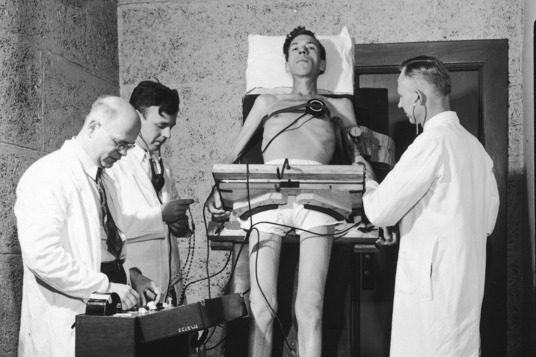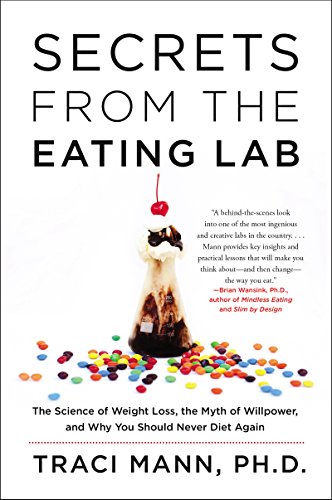
Are you feeling guilty about Christmas cookies? Well, don’t. Or, at least, don’t add to your stress by feeling like you “should” start a diet at the beginning of the New Year. If you’re a caregiver, you’re not doing yourself any favors. You’re under enough stress anyway. Adding to it won’t improve your health. Take a walk instead.

I’ve invited Traci Mann, PhD, to talk about dieting, stress, and caregiver wellness. Traci Mann, a social/health psychologist, is the Director of the Mann Lab at the University of Minnesota. She is also the author of Secrets From the Eating Lab: The Science of Weight Loss, the Myth of Willpower, and Why You Should Never Diet Again.
This is an amazing book on many levels. It’s practical, based on scientific research, and liberating for anyone who has gained and lost, gained and lost, and feels mounting panic as the holidays begin.
Why Food Relieves Stress
Family caregivers are under a whole lot of stress, and that stress often continues after the caregiving months or years end. At that point, many caregivers may have put on weight. They’ve been trapped inside, 24/7 looking after someone else, and the most natural thing is to eat. A former caregiver might think, “Oh, my gosh, I’ve got to go on a diet and take this weight off,” but that may not lead to the result they want. Traci, is there another way a caregiver can think about regaining her or his health?
TM: My heart goes out to caregivers. When psychologists want to study stress, the first group they study is caregivers. My thinking is that caregivers shouldn’t worry if they’ve gained weight. Dieting only increases stress. Do not be tempted to diet. Eating is and should be pleasurable.
MM: I have a feeling a lot of folks are going to think, “That’s all fine in theory, but I should go on a diet and improve my health.”
TM: In that case, managing stress is more important than managing your weight. Diets do not lead to long-term weight loss. Only 5% of dieters keep the weight off for two years. On top of that, dieting, by itself, causes a stress response in your body.
MM: People who’ve been on diets have heard the word cortisol bandied about, particularly with regard to belly fat. What’s the relationship between cortisol and telomeres, the little shoelace-caps on the tips of our DNA?
TM: The stress of dieting causes our bodies to produce the hormone cortisol. Cortisol pushes the body to develop belly fat, and that’s the most unhealthy place to carry excess weight. You don’t want to keep triggering the stress/cortisol response. Cortisol causes telomeres to get shorter. Chronic dieters have shorter telomeres.
Diet Myths And Ancel Keys
MM: Your book has an interesting chapter about research conducted back in the 1940s. Can you talk about Ancel Keys’ study and what the results showed about men who had voluntarily subjected themselves to semi-starvation, conditions we would call “dieting?”

TM: The Keys study asked men who were Conscientious Objectors to volunteer to be starved for six months. Keys put them on a semi-starvation diet and had them eat 1570 calories per day. That’s many more calories than a lot of current diet plans recommend.
He looked at everything that happened to the men, and there were many unpleasant psychological side effects. Crankiness and apathy. Difficulty focusing. Preoccupation with the food they couldn’t have. The men were unable to concentrate and had trouble forming thoughts. Their time perception changed, and time appeared to move more slowly. When the war ended, they didn’t care. If you can’t get interested in the end of WWII, you’ve got problems.
Dieting Reduces Our Ability To Make Good Decisions
MM: Why did dieting interfere with their decision-making?
TM: Dieting limits the resources you have left, beyond the focus on food. Dieting also leads to executive function issues, and that makes it harder to stick to a diet.
MM:So, did they, at least, lose weight?
TM: The men in the starvation study lost weight, but a year after they ended their participation, they overshot their initial weights. This occurred because food deprivation causes changes to happen in your body. Your body is trying to keep you from dying of starvation. There are hormonal changes that influence how much you have to eat to feel full. Your body’s metabolism adapts. These metabolic changes make you gain weight even if you consume the same number of calories. Essentially, these changes help you survive on less food.
MM: Can you be more specific about the psychological changes that occur when someone is dieting?
TM: First of all, they’re not just “psychological.” They’re neurological, which means they’re based on changes in physiology that are caused by starvation. A person is more likely to notice food nearby. It’s harder to take your attention off of it. You get a bigger dopamine reward when you see and eat food. That’s why dieters become so focused on food.
Dieters are often accused of lacking self-control. Research shows that dieters want to lose weight as much as anyone, and they do have self-control; but the changes that occur when we diet make it harder to keep the weight off. It’s the dieting itself that makes it almost inevitable that people will put the weight back on.
MM: Women are often told that they should love their bodies. I suppose that means love your body, thin or not. Are women doing something wrong if they don’t love their bodies?
TM: You never hear men being told to love their bodies. We need to respect our bodies and take care of them. I root for being okay with your body. It’s not a worthwhile goal to strive for being thin. It’s low on the list. You have to be suspect of anything that’s pushed on women and not on men. It’s more about body “okayness.”
Exercise Brings Immediate Benefits To Health
MM: If we cross weight loss off the list, what can caregivers do to improve their health?
TM: You can improve your health by exercising. Exercise doesn’t always lead to weight loss. People think it benefits you by causing you to lose weight, but it works even if you don’t lose weight. Just stick to it, even if the pounds don’t drop off. Exercise makes you healthier in measurable ways that matter, such as improving heart rate and blood pressure.

I have a lot of suggestions in my book, Secrets From the Eating Lab: The Science of Weight Loss, the Myth of Willpower, and Why You Should Never Diet Again, but one of them I’ll just mention here is to build in rewards for exercising. My husband listens to podcasts only while he’s running. But if you’re not into running and aren’t fit enough to exercise for long periods of time, you can get the same benefits from three, 10-minute bursts of treadmill walking per day as you do from 30 minutes of exercise, 5 days a week.
MM: What about food? Is there a way we can reprogram ourselves to make healthier choices?
TM: Eating vegetables is healthy. Fruit and vegetables carry most of the nutrients we need. We can’t get those as effectively thru vitamins, and we’re better off eating them every day. The most important thing is to add veggies. The more veggies you add, the less you will eat of other things.
MM: Are there ways to cook them that you like, or are you a raw food person?
TM: I don’t like raw veggies. I prefer to roast them in the oven. I make green beans that way: roasted with a bit of salt and a drizzle of olive oil. I’m in favor of adding things, rather than subtracting them. The more you forbid yourself, the more you want it. Space out your treats so that you don’t have them that often, and don’t eat them in insane portions.
MM: How did you get interested in studying diet, weight loss, and eating behaviors?
TM: I have an extended family of yo-yo dieters. In grad school I wanted to learn about obesity. When I began to read the literature, I saw that obese people didn’t eat more calories. Nothing that I thought was true was true. Now, I’m a health psychologist who uses a social-psychological approach. It’s not about your personality and not about your individual abilities. I study how people’s behavior is influenced by their circumstances, their partners, and how much they come into contact with food. These are situational things, rather than the type of person you are. We’re surrounded by food all the time, and it’s not healthy. But, that’s the way America is. Most people don’t have the willpower to survive that situation.
MM: If you had to sum up your thoughts about dieting, what would you say?
TM: If you’re dieted and lost weight and regained it, it’s not because you have a weaker willpower than anyone else. Today, there are so many people blaming themselves for the lack of success in losing weight and keeping it off. In fact they’ve done everything right. As for going on a diet, don’t do it.




